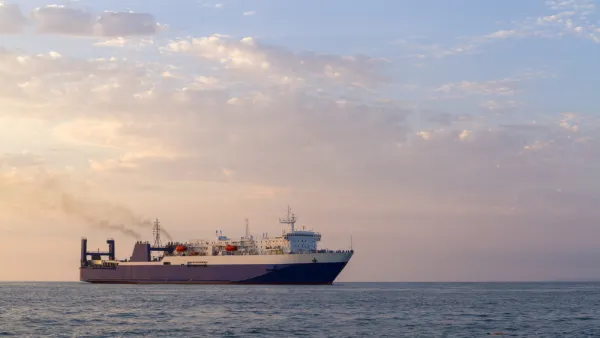Irvin Dawid discovered Planetizen when a classmate in an urban planning lab at San Jose State University shared it with him in 2003. When he left San Jose State that year, he took with him an interest in Planetizen, if not the master's degree in urban & regional planning.
As a long-time environmental activist, he formed the Sustainable Land Use committee for his local Sierra Club chapter and served six years on the Bay Area Air Quality Management District’s Advisory Council from 2002-2008. He maintains his interest in air quality by representing Sierra Club California on the Clean Air Dialogue, a working group of the Calif. Environmental Dialog representing business, regulatory and public health/environmental interests.
Major interests include transportation funding, e.g., gas taxes, vehicle miles traveled (VMT) fees, road tolls and energy subsidies that lead to unlevel playing fields for more sustainable choices.
He hails from Queens (Bayside) and Long Island (Great Neck); received an AAS in Fisheries & Wildlife Technology from SUNY Cobleskill and a B.S. from what is now Excelsior College.
After residing for three years on California’s North Coast, he’s lived on the San Francisco Peninsula since 1983, including 24 years in Palo Alto. Home is now near downtown Burlingame, a short bike-ride to the Caltrain station.
He’s been car-free since driving his 1972 Dodge Tradesman maxi-van, his means to exit Long Island in 1979, to the junkyard in 1988.
Major forms of transportation: A 1991 'citybike' and monthly Caltrain pass, zone 2-2. "It's no LIRR, but it may be the most bike friendly train in America."
Irvin can be reached at [email protected]
Tar Sands Oil Just Lost Another Outlet, For Now
It was viewed as a "David vs. Goliath" pipeline fight: the city of South Portland, Maine against a pipeline company backed by Big Oil. The city had passed a zoning ordinance preventing the export of oil which would have impacted public health.

Cleaning-Up the World's Dirtiest Fuel by 2020
A 2016 rule approved by a specialized agency of the U.N. is forcing large ships that burn bunker oil, the dirtiest type of fuel, to either burn a more costly low-sulfur variety, apply scrubbers, or turn to LNG.

Making Older Coal Power Plants More Efficient Without Making Them Cleaner
At the center of the EPA's newly proposed Affordable Clean Energy rule is doing away with a permitting process known as New Source Review that requires coal power plants to add scrubbers and other expensive pollution control equipment when upgraded.
Balloons and Straws: Where's the Connection?
Think "The Graduate," but now the emphasis in the future of plastics may be on restrictions. California may become the first state to restrict access to plastic straws, and balloons could be next due to the harm they cause the marine environment.
AAA Study: Auto Ownership More Cost-Effective Than Ride-Hailing
Even after factoring in insurance, parking, depreciation, fuel, repair, maintenance and licensing, urban dwellers would pay half the costs to travel, on average, nearly 11,000 miles annually in their own new car rather than relying on ride-hailing.

























